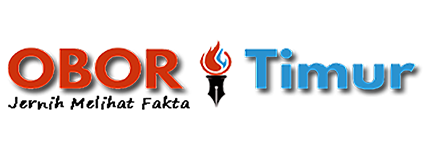Exploring job opportunities that offer visa sponsorship in the US and UK opens up a world of possibilities for foreign workers seeking employment abroad. From understanding the visa sponsorship process to discovering the benefits for both companies and employees, this guide delves into the nuances of working in these countries.
As we navigate through the various visa types, job sectors, challenges, and application processes, you'll gain a deeper insight into the intricate world of securing employment with visa sponsorship in the US and UK.
Jobs with Visa Sponsorship in the US and UK
Visa sponsorship in the context of job opportunities refers to when a company sponsors a foreign employee for a work visa to legally work in the United States or the United Kingdom. This process involves the employer taking responsibility for the visa application and supporting the employee's legal status in the country.
Comparison of Visa Sponsorship Process
In the US, the most common work visa is the H-1B visa, which requires the employer to petition for the employee and go through a lottery system due to the annual cap. On the other hand, in the UK, companies can sponsor employees through a Tier 2 (General) visa, which involves a points-based system and a minimum salary requirement.
The UK also offers a Tier 2 Intra-Company Transfer visa for employees of multinational companies transferring to a UK branch.
Benefits for Companies Offering Visa Sponsorship
- Access to global talent pool: Companies can attract skilled workers from around the world, bringing diverse perspectives and expertise to the team.
- Addressing skill shortages: Visa sponsorship allows companies to fill critical roles that may not be readily available in the local market.
- Building a diverse workforce: By sponsoring visas for foreign employees, companies can create a more inclusive and diverse workplace environment.
- Enhancing innovation and competitiveness: Employing individuals from different backgrounds can lead to increased innovation and competitiveness in the company.
Visa Types and Eligibility
When it comes to working in the US and UK, understanding the types of visas available and the eligibility criteria is crucial. Let's delve into the common types of visas that allow individuals to work in these countries and the requirements for obtaining them.
Visa Types in the US and UK
- In the US, common work visas include the H-1B visa for specialty occupations, the L-1 visa for intracompany transfers, and the O-1 visa for individuals with extraordinary ability.
- In the UK, popular work visas include the Tier 2 (General) visa for skilled workers, the Tier 1 (Exceptional Talent) visa for individuals with exceptional talent or promise in the fields of science, engineering, humanities, the arts, or digital technology.
Eligibility Criteria for Work Visas
- For the US, individuals applying for work visas must have a valid job offer from a US employer, possess the required qualifications for the specific visa category, and meet any additional criteria set by the US Citizenship and Immigration Services.
- In the UK, applicants for work visas must have a job offer from a UK employer with a Certificate of Sponsorship, meet the English language proficiency requirements, and score enough points on the UK Points-Based System.
Specific Requirements for Visa Sponsorship
- Employers in both the US and UK must be approved sponsors to provide visa sponsorship for foreign workers, and they must adhere to specific regulations and requirements set by the respective immigration authorities.
- Additional qualifications or requirements may vary depending on the visa category and the individual's specific circumstances, such as years of experience in a particular field, educational background, or specialized skills.
Job Sectors and Industries
In both the US and UK, there are specific job sectors and industries that are known to frequently offer visa sponsorship to foreign workers. This opens up opportunities for individuals seeking employment in these countries.
Technology and IT
The technology and IT sector in both the US and UK is a prime industry where companies are more likely to sponsor visas for skilled foreign workers. With the constant demand for tech talent and expertise, companies often look beyond borders to fill these roles.
- Software Developers
- Data Analysts
- Cybersecurity Specialists
- Network Engineers
Healthcare
Healthcare is another sector where foreign talent is in high demand, especially in the US. Healthcare facilities, hospitals, and research institutions often sponsor visas for medical professionals to address shortages in certain specialties.
- Registered Nurses
- Physicians
- Medical Technologists
- Physical Therapists
Finance
The finance industry in both countries also frequently sponsors visas for foreign professionals with expertise in areas like banking, accounting, and financial analysis. There is a constant need for skilled financial professionals in various roles.
- Financial Analysts
- Accountants
- Investment Bankers
- Actuaries
Challenges and Considerations
When it comes to sponsoring visas for international employees, employers face a number of challenges and considerations. These can range from legal and compliance issues to the practicalities of offering visa sponsorship to attract and retain top talent.
Legal and Compliance Issues
Employers sponsoring visas in the US and UK must navigate complex legal and compliance frameworks. This includes ensuring that they meet all the requirements set forth by the respective immigration authorities. Failure to comply with these regulations can result in serious consequences for both the employer and the employee, including visa denials or revocations
.
- Employers must carefully review and understand the visa sponsorship process to avoid any legal missteps.
- Ensuring that all required documentation is accurate and submitted on time is crucial to maintaining compliance.
- Employers must also be aware of any changes to immigration laws and policies that may impact visa sponsorship.
Factors to Consider Before Offering Visa Sponsorship
Before deciding to offer visa sponsorship, companies need to consider various factors to ensure a smooth and successful process for both the employer and the employee.
- Assessing the cost implications of sponsoring a visa, including application fees and legal expenses.
- Evaluating the availability of visas for the specific job role and the likelihood of approval.
- Developing a comprehensive onboarding process for international employees to help them integrate into the company culture.
- Providing ongoing support and resources to assist employees with visa-related challenges or questions.
Application Process and Timelines
When applying for a work visa through an employer's sponsorship, there are several steps involved in the process. Employers typically initiate the application on behalf of the employee, and it is crucial to follow all the necessary procedures to ensure a successful outcome.
Step-by-Step Process for Work Visa Application
- Employer obtains a Labor Certification Approval from the Department of Labor, if required.
- Employer files Form I-129, Petition for Nonimmigrant Worker, with U.S. Citizenship and Immigration Services (USCIS).
- Employee completes Form DS-160, Online Nonimmigrant Visa Application, and schedules a visa interview at the U.S. Embassy or Consulate.
- Employee attends the visa interview and provides all required documentation, including the job offer letter and proof of qualifications.
- Upon approval, the employee can travel to the U.S. and start working for the sponsoring employer.
Typical Timelines for Visa Sponsorship Application
- The processing times for work visa applications can vary depending on the type of visa and the workload of the USCIS.
- On average, it can take anywhere from a few weeks to several months for the entire visa sponsorship process to be completed.
- It is essential to start the application process well in advance to account for any potential delays or issues that may arise.
Documentation and Paperwork Requirements
- Employees may need to provide documents such as a valid passport, educational certificates, and professional licenses.
- Employers must submit supporting documents like the job offer letter, proof of financial stability, and compliance with labor laws.
- Additional paperwork, such as the Labor Condition Application (LCA) or Form I-797, may be required depending on the visa category.
Concluding Remarks
From unraveling the complexities of visa sponsorship to shedding light on the demand for foreign talent in specific industries, this guide has provided a comprehensive overview of pursuing job opportunities in the US and UK with visa sponsorship. As you embark on your journey towards working in these countries, remember the key considerations and steps Artikeld here to navigate the process successfully.
FAQ Section
What is visa sponsorship?
Visa sponsorship involves a company in the US or UK sponsoring a foreign employee's visa to legally work in the respective country.
What are the common types of work visas for the US and UK?
In the US, common work visas include H-1B and L-1 visas, while in the UK, Tier 2 (General) visas are frequently used for sponsored employment.
What challenges do employers face when sponsoring visas for international employees?
Employers often encounter challenges such as navigating complex legal requirements, dealing with visa delays, and ensuring compliance with immigration laws.
What is the typical timeline for the visa sponsorship application process?
The timeline for the visa sponsorship application process can vary but generally involves several months from application submission to visa approval.













